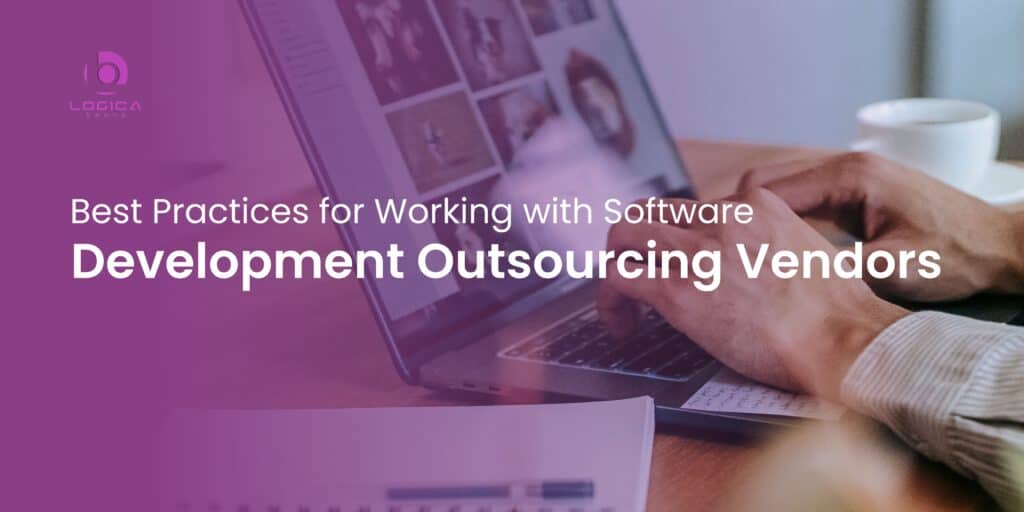The key to implement the best practice is to establish clear communication and expectations with the vendor, and to provide regular support and guidance to ensure the success of the project. And trust me on this the effective communication always works the best. Along with communication there are certain practice to follow for the smooth coordination with outsourcing partner, below are some of them.
Defining work scope
Clearly define the scope of the project and set clear expectations with the vendor. Before beginning work with the vendor, it is important to clearly define the scope of the project and set clear expectations for what the vendor will be responsible for. This should include a detailed description of the project, the goals and objectives, the timeline, and any other important information. By doing this, you will help ensure that the vendor understands exactly what is expected of them and can plan accordingly.
Communication
Establish clear communication channels with the vendor. Effective communication is key to the success of any project, and this is especially true when working with an outsourcing vendor. Make sure to establish clear communication channels with the vendor, such as email, phone, or video conferencing, and use these channels regularly to stay in touch with the vendor and track the progress of the project.
Providing feedback
Provide regular feedback to the vendor. It is important to provide regular feedback to the vendor throughout the project. This will help the vendor understand your needs and preferences, and make any necessary adjustments to the project. Make sure to provide both positive and constructive feedback, and be clear and specific in your comments.
Tools for tracking the work process
Establish a clear process for tracking and managing changes to the project. As the project progresses, it is likely that changes will need to be made to the scope, timeline, or other aspects of the project. To ensure that these changes are made in an organized and controlled manner, it is important to establish a clear process for tracking and managing them. This could involve using a project management tool, such as Trello or Asana, to keep track of changes and their impact on the project.
Clear milestones
Set clear milestones and deadlines for the project, and hold the vendor accountable for meeting them. To ensure that the project stays on track and is completed on time, it is important to set clear milestones and deadlines for the project. Make sure to communicate these milestones and deadlines to the vendor, and hold them accountable for meeting them. This will help ensure that the project stays on schedule and that you receive the deliverables as expected.
Monitoring the progress
Monitor the progress of the work regularly, and provide feedback and guidance as needed to ensure that the project stays on track. It’s important to stay involved in the project and provide support and guidance to the vendor as needed.
Transparency
Be transparent and open with the vendor. This can include sharing any relevant information or documents that the vendor may need to complete the work, and being open and honest about any challenges or issues that may arise.
Tracking the progress
Establish a system for tracking and managing the project. This can include using project management tools, setting up regular meetings or check-ins, and establishing a system for tracking progress and addressing any issues that may arise.
Time and availability
Consider the vendor’s location and time zone when selecting a vendor. If the vendor is located in a different time zone, it’s important to establish clear communication protocols to ensure that there is overlap for meetings and check-ins.
Payment terms
Consider using an escrow service to manage payments. An escrow service can hold payments in a secure account until the work is completed to the satisfaction of both parties. This can provide additional protection for both the company and the vendor.
Coordinate throughout the project
It’s important to provide guidance and support to the vendor throughout the project to ensure that the work is completed successfully. This can include providing feedback on the work, answering any questions the vendor may have, and offering guidance and support as needed. The key here is to establish clear communication and expectations with the vendor, and to provide regular support and guidance to ensure the success of the project.
Things you should avoid
- ● Avoid making assumptions about the vendor’s capabilities or level of expertise. It’s important to carefully evaluate the vendor’s skills and experience to ensure that they are well-suited for the project.
- ● Avoid making last-minute changes to the scope of work or project requirements. This can lead to misunderstandings and can cause delays or additional costs.
- ● Avoid micromanaging the vendor or their team. It’s important to give the vendor the autonomy and flexibility they need to complete the work effectively.
- ● Avoid skipping important steps in the vendor selection process, such as conducting interviews or asking for references. This can lead to working with a vendor who is not well-suited for the project.
- ● Avoid failing to establish clear communication channels and protocols with the vendor. Regular communication is key to ensuring the success of the project.
- ● The key is to carefully evaluate the vendor’s capabilities, establish clear communication and expectations, and avoid making any last-minute changes to the project.
Advantages of working with Software Development Vendors
The main advantages of having to work
- ● By outsourcing certain tasks or projects, the company can focus on its core competencies and leave the technical work to the vendor. This can help the company to be more efficient and effective, and can free up internal resources to be used on other important projects.
- ● When selecting a software development vendor, it’s important to carefully evaluate their experience and expertise. This can include reviewing their portfolio of previous work, asking for references from clients, and conducting interviews with the vendor’s team. This can help the company to ensure that the vendor has the necessary skills and experience to complete the work successfully.
- ● Another key factor to consider is the vendor’s location and time zone. If the vendor is located in a different time zone, it’s important to establish clear communication protocols to ensure that there is overlap for meetings and check-ins. This can help to prevent any miscommunications or delays due to differences in time zones.
- ● In order to ensure that the project is completed successfully, it’s important to establish clear expectations and goals with the vendor. This can include defining the scope of work, deadlines, and any other important details. This can help to ensure that both the company and the vendor are on the same page, and can help to prevent misunderstandings or disagreements.
- ● Throughout the project, it’s important to maintain regular communication with the vendor and provide feedback and guidance as needed. This can help to keep the project on track and ensure that any issues are addressed promptly. Regular communication can also help to build trust and a good working relationship with the vendor, which can be beneficial for future projects.
Conclusion
- ● Clearly define the scope of work and set expectations with the vendor. This includes defining the project goals, deliverables, deadlines, and any other important details. This can help to ensure that both the company and the vendor are on the same page and can prevent misunderstandings or disagreements.
- ● Establish clear communication channels and protocols with the vendor. This can include regular meetings or check-ins, using project management tools, and setting up a system for tracking progress and addressing any issues that may arise. Regular communication is key to the success of the project.
- ● Ensure that the vendor has the necessary skills and experience to complete the work. This may involve conducting interviews, reviewing portfolios, and asking for references from previous clients. It’s important to carefully evaluate the vendor’s capabilities to ensure that they are well-suited for the project.
- ● Use a contract to clearly outline the terms of the engagement, including the scope of work, payment terms, and any other important details. A contract can help to protect both the company and the vendor and can provide a clear reference for any disputes or disagreements that may arise.
- ● Monitor the progress of the work regularly, and provide feedback and guidance as needed to ensure that the project stays on track. It’s important to stay involved in the project and provide support and guidance to the vendor as needed.
- ● Consider using an escrow service to manage payments. An escrow service can hold payments in a secure account until the work is completed to the satisfaction of both parties. This can provide additional protection for both the company and the vendor.










